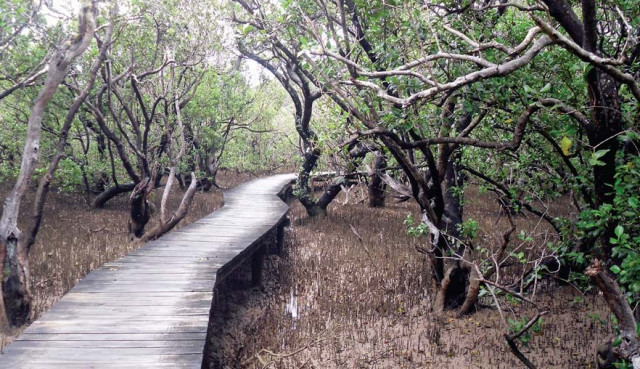Better prospects lure timber choppers into selling pine nuts
Reforestation is the next step in the campaign.

A year-and-a-half ago in the Suleiman Valley, a truck loaded with chopped timber travelled to the market every day to unload its wares. “Now this happens just once a month,” says Ibrahim Khan, the World Wide Fund for Nature (WWF) conservation officer for Khyber-Pakhtunkhwa and Balochistan.
Last year, the WWF introduced a Rs30 million marketing campaign encouraging locals to sell pine nuts rather than timber. “In a good season, more money can be earned selling pine nuts than wood,” said Khan.
Agribusiness Support Fund has set up plants to roast and package nuts and lumberjacks have been educated about the dangers of cutting trees. Reforestation is the next step in the campaign.
This is just one of several WWF conservation campaigns across Balochistan, Gilgit-Baltistan, Punjab and Sindh. Despite lack of funding, most initiatives have been successful, according to officials.
In April, 20% of Murree’s total forestation was mapped. New maps were compared to forensic maps from 1880 and 1926, to determine the extent of the damage. “By April 2012, the rest of the land will be identified and mapped. Illegal buildings will be demolished, native conifers will be replanted and regional animals will be reintroduced in the regions,” said Urooj Saeed, the GIS manager for Muree district. Saeed expects the project to take 10 years to complete.
In the past year, measures have been taken to reduce soil erosion and preserve natural water resources in Ayubia Park, the Mangrove forest in Indus Delta and the Central Karakoram National Park in Gilgit-Baltistan.
“Willow, poplar and Russian olive have been replanted in 82 of 350 deforested hectares,” said Babar Khan, head of WWF Gilgit-Baltistan. Rs 80 million were allocated for the project that began in 2007. Half of the money came from the government, 30% from NGOs and 20% from the WWF.
In July 2009, Pakistan set a world record by planting over 300,000 mangrove trees in the Indus Delta in Sindh. The mangrove forest, stretching 86,000 hectares, was endangered because locals were chopping trees for fuel. Now alternative energy sources, such as turbines and solar panels, are used to generate electricity. WWF has signed a contract to provide these power sources for free in remote communities in Keti Bandar, an area of Thatta, in exchange for the locals’ promise to not only avoid cutting mangroves, but to help plant new trees and raise awareness.
Published in The Express Tribune, June 7th, 2011.


















COMMENTS
Comments are moderated and generally will be posted if they are on-topic and not abusive.
For more information, please see our Comments FAQ